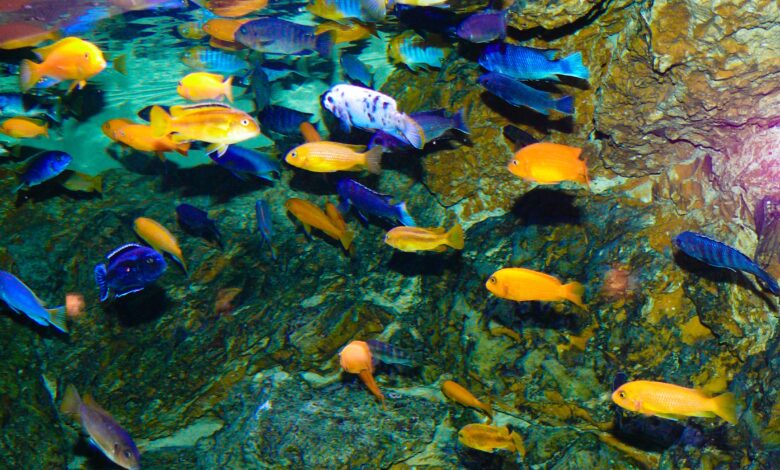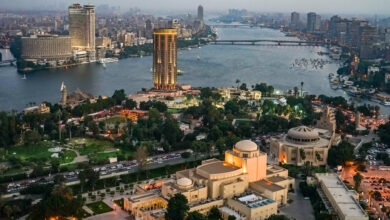Lake Malawi: The Lake With the Greatest Number of Fish Species on Earth

- About Lake Malawi
- Activities On Lake Malawi
- UNESCO World Heritage Centre
Lake Malawi, also known as Lake Nyasa, is one of Africa’s most remarkable freshwater bodies, renowned for its breathtaking beauty and unparalleled biodiversity.
Located at the southern end of the Great Rift Valley, this African treasure is home to the greatest number of fish species of any lake in the world.
With over 1,000 species of fish, the lake’s vibrant ecosystems have made it a crucial site for both ecological studies and eco-tourism.
In this article, we’ll explore why Lake Malawi has the highest number of fish species, the significance of these species, and the lake’s importance to global biodiversity.
What Makes Lake Malawi the Most Biodiverse Freshwater Lake?
Lake Malawi’s claim to fame lies in its rich biodiversity, particularly its cichlid population. Of the 1,000+ fish species in the lake, 700-1,000 species are cichlids—a family of brightly colored, freshwater fish known for their unique adaptations and evolutionary radiation.
This makes it one of the most species-rich lakes in the world, often referred to as the “Aquarium of the World.”
Lake Malawi’s incredible fish diversity can be attributed to its stable environment, which has allowed species to evolve over millions of years.
Unlike other lakes, Lake Malawi’s waters remain warm and oxygenated year-round, providing a conducive habitat for species to thrive and adapt to different ecological niches (WorldAtlas).
The Role of Adaptive Radiation in Lake Malawi’s Fish Species
The process that underpins the lake’s extraordinary fish diversity is called adaptive radiation. This evolutionary phenomenon occurs when species rapidly diversify to exploit various ecological niches.
Lake Malawi’s cichlids are a classic example of adaptive radiation, evolving unique traits such as specialized mouthparts and feeding behaviors. This has allowed them to inhabit different parts of the lake, from rocky shorelines to sandy bottoms and deep waters (WorldAtlas).
For example, some cichlids have developed unique behaviors to hunt insects or scrape algae from rocks, while others have adapted to feed on plankton or even other fish.
These behavioral adaptations, combined with physical changes in size, color, and shape, have led to a dazzling variety of cichlids in the lake.
Also Read: The African Great Lakes
Why Lake Malawi Is a Diver’s Paradise
For underwater enthusiasts, Lake Malawi offers one of the best freshwater diving experiences in the world and one of the best diving spots in Africa.
With crystal-clear waters and an array of colorful fish species, the lake is a popular destination for snorkeling and scuba diving.
Divers flock to explore its unique ecosystems and witness firsthand the behaviors of its fish inhabitants.
Popular diving spots include Cape Maclear and Nkhata Bay, where divers can explore the underwater world of Lake Malawi and encounter vibrant cichlids up close.
The variety in fish species makes it possible to experience marine-like biodiversity in a freshwater setting.
Ecological Importance and Global Significance
The ecological significance of Lake Malawi cannot be overstated. As one of the oldest lakes on Earth, its stable environment has allowed life forms to evolve and diversify for millions of years, creating a natural laboratory for scientists studying evolutionary processes.
Cichlids in Lake Malawi are especially important in evolutionary biology due to their rapid speciation. The lake’s fish have evolved in isolation, allowing researchers to study natural selection in action.
The biodiversity in Lake Malawi offers valuable insights into speciation, evolutionary adaptation, and ecosystem dynamics.
Also Read: Rift Valley Lakes From Naivasha to Nakuru
Conservation Challenges and Efforts
Despite its natural beauty and biodiversity, Lake Malawi faces several environmental threats. Overfishing, pollution, and the effects of climate change are threatening the delicate balance of its ecosystems.
Many species, especially cichlids, are under threat from unsustainable fishing practices, which deplete the lake’s fish populations.
Several conservation initiatives have been introduced to protect Lake Malawi’s environment. Organizations like WWF and local governments have worked together to promote sustainable fishing practices and increase awareness of the importance of preserving this unique ecosystem (Radar Africa).
Lake Malawi as a World Heritage Site
Recognizing its global ecological importance, UNESCO designated Lake Malawi as a World Heritage Site. This designation highlights the lake’s extraordinary biodiversity and the need for international conservation efforts to protect it for future generations.
Lake Malawi’s unique ecosystems offer a glimpse into the past, showcasing how life on Earth evolves and adapts over time (WorldAtlas).
Conclusion
Lake Malawi is more than just a lake—it’s a window into evolutionary processes and a treasure trove of biodiversity.
With its unmatched number of fish species, particularly cichlids, it stands as a global icon of freshwater ecosystems.
However, the future of this ecological wonder depends on conservation efforts to protect its delicate ecosystems from overfishing and environmental degradation.
For those interested in evolution, ecology, or simply witnessing nature’s wonders, Lake Malawi is an essential destination.
Through sustainable practices and increased awareness, we can ensure that this lake continues to thrive as one of the most biodiverse bodies of water on the planet.
External Links:





